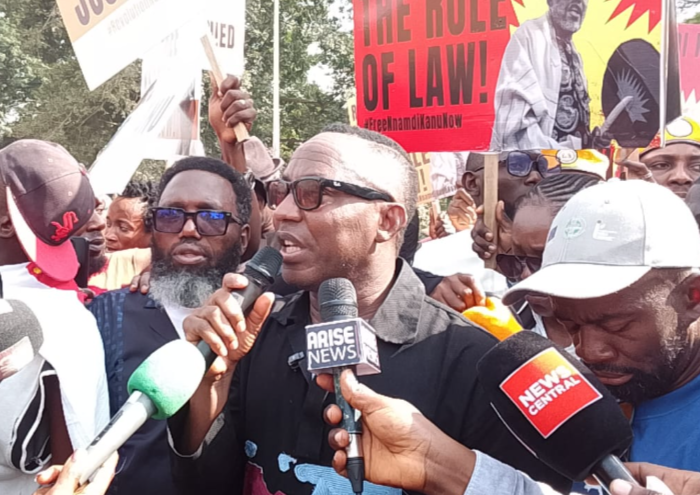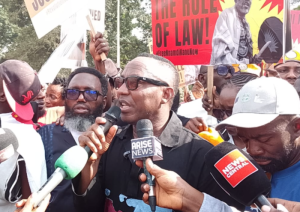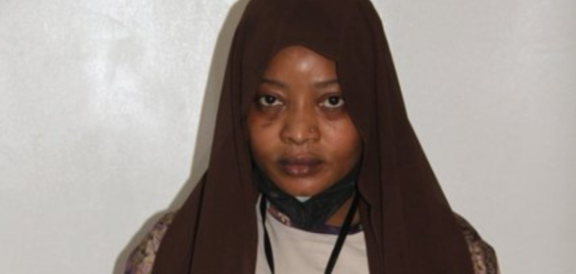Security operatives in Abuja on Monday dispersed hundreds of protesters demanding the release of detained Indigenous People of Biafra (IPOB) leader, Nnamdi Kanu, using tear gas and other crowd-control measures.
The demonstrators, who converged on major parts of the Federal Capital Territory under the banner #FreeNnamdiKanuNow, had planned to march toward the Presidential Villa, National Assembly, and Court of Appeal before police intervened.
Eyewitnesses said the peaceful protest turned chaotic after security agents fired tear gas canisters to prevent the crowd from advancing toward restricted government areas. Several protesters were reportedly arrested, while journalists covering the event claimed they were harassed and had their equipment damaged.
A BusinessDay vehicle was hit by a tear gas canister, shattering its windshield, while traffic and commercial activities were paralyzed in parts of Maitama, Unity Fountain, and the Three Arms Zone
The Nigeria Police Force (NPF) later justified its action, saying the protesters violated a subsisting court order that prohibits demonstrations within the high-security zones of the capital. Police spokesperson ACP Olumuyiwa Adejobi said the force used “minimum force” to restore order and ensure free movement for residents.
“Our officers acted professionally. The tear gas was deployed to disperse crowds who blocked major roads and attempted to enter restricted areas,” Adejobi said in a statement.
However, human-rights groups, including Amnesty International Nigeria, condemned the police action as excessive and a violation of citizens’ constitutional right to peaceful assembly.
“The authorities must protect the rights of protesters and journalists rather than criminalize dissent,” Amnesty said in a post on X (formerly Twitter).
The protest marked one of the largest public demonstrations in recent months demanding Kanu’s release from custody. The IPOB leader has been detained since 2021 on treason-related charges after his extradition from Kenya. His case has sparked widespread debate over human rights, rule of law, and regional marginalization in Nigeria’s South-East.
Traffic gridlock persisted for hours along Nyanya–Mararaba and Bwari–Dutse routes as security checkpoints were erected to prevent further movement toward the city centre.
As of press time, police had yet to confirm the exact number of arrests or injuries recorded during the operation.






